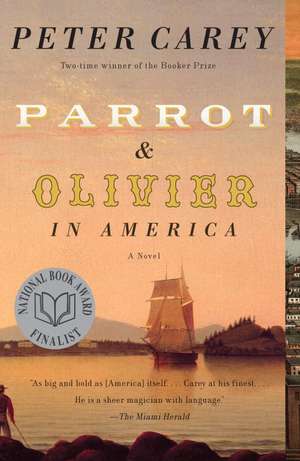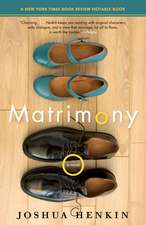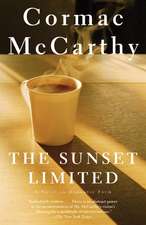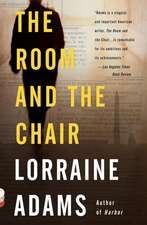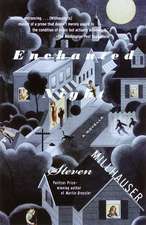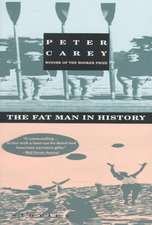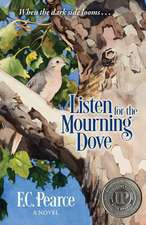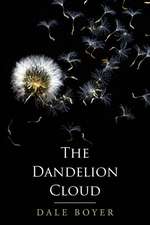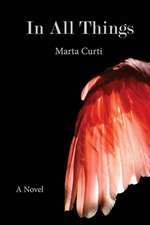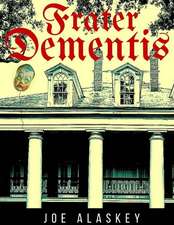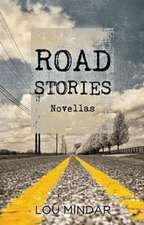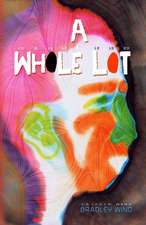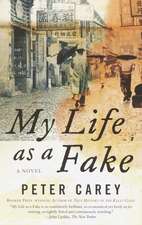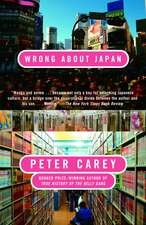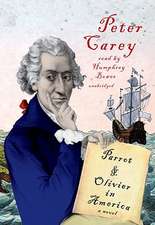Parrot and Olivier in America
Autor Peter Stafford Careyen Limba Engleză Paperback – 31 dec 2010
Vezi toate premiile Carte premiată
Man Booker Prize (2010), National Book Awards (2010)
National Book Award Finalist
Two-time Booker Prize-winner Peter Carey’s latest feat of imagination is an irrepressible, audacious, and trenchantly funny novel set mostly in nineteenth-century America.
Olivier—an improvisation on the life of Alexis de Tocqueville—is an aristocrat born just after the French Revolution. Parrot is the motherless son of an itinerant English engraver. Their lives are joined when Olivier sets sail for the New World to save his neck from one more revolution and Parrot is sent with him as spy, protector, foe, and foil. With the story of their unlikely friendship, Peter Carey explores the adventure of American democracy with the dazzling inventiveness and richness of characterization, story, and language that we have come to expect from this superlative writer.
Preț: 114.79 lei
Nou
Puncte Express: 172
Preț estimativ în valută:
21.97€ • 22.85$ • 18.14£
21.97€ • 22.85$ • 18.14£
Carte disponibilă
Livrare economică 25 martie-08 aprilie
Preluare comenzi: 021 569.72.76
Specificații
ISBN-13: 9780307476012
ISBN-10: 0307476014
Pagini: 381
Dimensiuni: 134 x 202 x 23 mm
Greutate: 0.3 kg
Editura: Vintage Books USA
ISBN-10: 0307476014
Pagini: 381
Dimensiuni: 134 x 202 x 23 mm
Greutate: 0.3 kg
Editura: Vintage Books USA
Notă biografică
Peter Carey is the author of ten previous novels and has twice received the Booker Prize. His other honors include the Commonwealth Writers’ Prize and the Miles Franklin Literary Award. Born in Australia, he has lived in New York City for twenty years.
Extras
Olivier
i
I had no doubt that something cruel and catastrophic had happened before I was even born, yet the comte and comtesse, my parents, would not tell me what it was. As a result my organ of curiosity was made irritable and I grew into the most restless and unhealthy creature imaginable—slight, pale, always climbing, prying into every drain and attic of the Château de Barfleur.
But consider this: Given the ferocity of my investigations, is it not half queer I did not come across my uncle’s célérifère?
Perhaps the célérifère was common knowledge in your own family. In mine it was, like everything, a mystery. This clumsy wooden bicycle, constructed by my uncle Astolphe de Barfleur, was only brought to light when a pair of itinerant slaters glimpsed it strapped to the rafters. Why it should be strapped, I do not know, nor can I imagine why my uncle—for I assume it was he—had used two leather dog collars to do the job. It is my nature to imagine a tragedy—that loyal pets have died for instance—but perhaps the dog collars were simply what my uncle had at hand. In any case, it was typical of the riddles trapped inside the Château de Berfleur. At least it was not me who found it and it makes my pulse race, even now, to imagine how my mother might have reacted if I had. Her upsets were never predictable. As for her maternal passions, these were not conventionally expressed, although I relished those occasions, by no means infrequent, when she feared that I would die. It is recorded that, in the year of 1809, she called the doctor on fifty-three occasions. Twenty years later she would still be taking the most outlandish steps to save my life.
...
My childhood was neither blessed nor tainted by the célérifère, and I would not have mentioned it at all, except—here it is before us now.
Typically, the Austrian draftsman fails to suggest the three dimensions.
However:
Could there be a vehicle more appropriate for the task I have so recklessly set myself, one that you, by-the-by, have supported by taking this volume in your hands? That is, you have agreed to be transported to my childhood where it will be proven, or if not proven then strongly suggested, that the very shape of my head, my particular phrenology, the volume of my lungs, was determined by unknown pressures brought to bear in the years before my birth.
So let us believe that a grotesque and antique bicycle has been made available to us, its wooden frame in the form of a horse, and of course if we are to approach my home this way, we must be prepared to push my uncle’s hobby across fallen branches, through the spinneys. It is almost useless in the rough ground of the woods, where I and the Abbé de La Londe, my beloved Bébé, shot so many hundreds of larks and sparrows that I bruised my little shoulder blue.
“Careful Olivier dear, do be careful.”
We can ignore nose bleeding for the time being, although to be realistic the blood can be anticipated soon enough—spectacular spurts, splendid gushes—my body being always too thin-walled a container for the passions coursing through its veins, but as we are making up our adventure let us assume there is no blood, no compresses, no leeches, no wild gallops to drag the doctor from his breakfast.
And so we readers can leave the silky treacherous Seine and cross the rough woodlands and enter the path between the linden trees, and I, Olivier-Jean-Baptiste de Clarel de Barfleur de Garmont, a noble of Myopia, am free to speed like Mercury while pointing out the blurry vegetable garden on the left, the smudgy watercolor of orchard on the right. Here is the ordure of the village road across which I can go sailing, skidding, blind as a bat, through the open gates of the Château de Barfleur.
Hello Jacques, hello Gustave, Odile. I am home.
On the right, just inside, is Papa’s courthouse where he conducts the marriages of young peasants, thus saving them military service and early death in Napoleon’s army. It does not need to be said that we are not for Bonaparte, and my papa leaves the intrigues for others. We live a quiet life—he says. In Normandy, in exile, he also says. My mother says the same thing, but more bitterly. Only in our architecture might you glimpse signs of the powerful familial trauma. We live a quiet life, but our courtyard resembles a battlefield, its ancient austerity insulted by a sea of trenches, fortifications, red mud, white sand, gray flagstones, and fifty-four forsythias with their roots bound up in balls of hessian. In order that the courtyard should reach its proper glory, the Austrian architect has been installed in the Blue Room with his drawing boards and pencils. You may glimpse this uppity creature as we pass.
I have omitted mention of the most serious defect of my uncle’s vehicle—the lack of steering. There are more faults besides, but who could really care? The two-wheeled célérifère was one of those dazzling machines that are initially mocked for their impracticality until, all in a great rush, like an Italian footman falling down a staircase, they arrive in front of us, unavoidably real and extraordinarily useful.
The years before 1805, when I was first delivered to my mother’s breast, constituted an age of inventions of great beauty and great terror—and I was very soon aware of all of this without knowing exactly what the beauty or the terror were. What I understood was drawn solely from what we call the symbolic aggregate: that is, the confluence of the secrets, the disturbing flavor of my mother’s milk, my own breathing, the truly horrible and unrelenting lowing of the condemned cattle which, particularly on winter afternoons, at that hour when the servants have once more failed to light the lanterns, distressed me beyond belief.
But hundreds of words have been spent and it is surely time to enter that château, rolling quietly on our two wheels between two tall blue doors where, having turned sharply right, we shall be catapulted along the entire length of the long high gallery, traveling so fast that we will be shrieking and will have just sufficient time to notice, on the left, the conceited architect and his slender fair-haired assistant. On the right—look quickly—are six high windows, each presenting the unsettling turmoil of the courtyard, and the gates, outside which the peasants and their beasts are constantly dropping straw and fecal matter.
You might also observe, between each window, a portrait of a Garmont or a Barfleur or a Clarel, a line which stretches so far back in time that should my father, in the darkest days of the Revolution, have attempted to burn all the letters and documents that would have linked him irrevocably to these noble privileges and perils, he would have seen his papers rise from the courtyard bonfire still alive, four hundred years of history become like burning crows, lifted by wings of flame, a plague of them, rising into a cold turquoise sky I was not born to see.
But today is bright and sunny. The long gallery is a racetrack, paved with marble, and we swish toward that low dark door, the little oratory where Maman often spends her mornings praying.
But my mother is not praying, so we must carry our machine to visit her. That anyone would choose oak for such a device beggars belief, but my uncle was clearly an artist of a type. Now on these endless stairs I feel the slow drag of my breath like a rat-tail file inside my throat. This is no fun, sir, but do not be alarmed. I might be a slight boy with sloping shoulders and fine arms, but my blood is cold and strong, and I will swim a river and shoot a bird and carry the célérifère to the second floor where I will present to you the cloaked blindfolded figure on the chaise, my mother, the Comtesse de Garmont.
Poor Maman. See how she suffers, her face gaunt, glowing in the gloom. In her youth she was never ill. In Paris she was a beauty, but Paris has been taken from her. She has her own grand house on the rue Saint-Dominique, but my father is a cautious man and we are in exile in the country. My mother is in mourning for Paris, although sometimes you might imagine her a penitent. Has she sinned? Who would tell me if she had? Her clothes are both somber and loose-fitting as is appropriate for a religious woman. Her life is a kind of holy suffering existing on a plane above her disappointing child.
I also am sick, but it is in no sense the same. I am, as I often declare myself, a wretched beast.
Behold, the dreadful little creature—his head under a towel, engulfed in steam, and the good Bébé, who was as often my nurse as my tutor and confessor, sitting patiently at my side, his big hand on my narrow back while I gasped for life so long and hard that I would—still in the throes of crisis—fall asleep and wake with my nose scalded in the basin, my lungs like fish in a pail, grasping what they could.
After how many choking nights was I still awake to witness the pale light of dawn lifting the dew-wet poplar leaves from the inky waters of the night, to hear the cawing of the crows, the antic gargoyle torments of country life?
I knew I would be cured in Paris. In Paris I would be happy.
It was the Abbé de La Londe’s contrary opinion that Paris was a pit of vile miasmas and that the country air was good for me. He should have had me at my Catullus and my Cicero but instead he would drag me, muskets at the ready, into what we called the Bottom Hundred where we would occupy ourselves shooting doves and thrush, and Bébé would play beater and groundsman and priest. “You’re a splendid little marksman,” Bébé would say, jogging to collect our plunder. “Quam sagaciter puer telum conicit!” I translated. He never learned I was shortsighted. I so wished to please him I shot things I could not see.
My mother would wish me to address him as vous and l’Abbé, but such was his character that he would be Bébé until the day he died.
I was a strange small creature for him to love. He was a strong and handsome man, with snow-white hair and shrewd eyes easily moved to sympathy. He had raised my father and now I trusted myself entire to him, his big liver-spotted hands, his patient manner, the smell of Virginian tobacco which stained the shoulder of his cassock, and filled me with the atoms of America twenty years before I breathed its air. “Come young man,” he would say. “Come, it’s a beautiful day—Decorus est dies.” And the hail would be likely flailing your back raw and he would marvel, not at the cruel pummeling, but at the miracle of ice. Or if not the ice, then the wind—blowing so violently it seemed the North Sea itself was pushing up the Seine and would wash away the wall that separated the river from the bain.
The meek would not swim, but Bébé made sure I was not meek. He would be splashing in the deep end of the bain, naked as a broken statue—“Come on Great Olivier.”
If I became—against all that God intended for me—a powerful swimmer, it was not because of the damaging teachings of Jean-Jacques Rousseau, but because of this good priest and my desire to please him. I would do anything for him, even drown myself. It was because of him that I was continually drawn away from the awful atmosphere of my childhood home, and if I spent too many nights in the company of doctors and leeches, I knew, in spite of myself, the sensual pleasures of the seasons, the good red dirt drying out my tender hands.
And of course I exaggerate. I lived at the Château de Barfleur for sixteen years and my mother was not always to be found lying in her pigeonhole with the wet sheet across her eyes. There was, above my father’s locked desk, a large and lovely pencil portrait of my maman, as light as the dream of a child that was never to be born. Her nose here was perhaps a little too narrow, a trifle severe, but there was such true vitality in the likeness. She showed a clear forehead, a frank expression, inquiring eyes that directly engaged the viewer, and not only here, but elsewhere—for there would be many nights in my childhood when she would rise up from her bed, dress herself in all her loveliness, and welcome our old friends, not those so recently and swiftly elevated, but nobles of the robe and sword. To stand in the courtyard on these evenings with all the grand coaches out of sight behind the stables, to see the fuzzy moon and the watery clouds scudding above Normandy, was to find oneself transported back to a vanished time, and one would approach one’s grand front door, not speeding on a bicycle, but with a steady slippered tread and, on entering, smell, not dirt or cobwebs, but the fine powder on the men’s wigs, the lovely perfumes on the ladies’ breasts, the extraordinary palette of the ancien régime, such pinks and greens, gorgeous silks and satins whose colors rose and fell among the folds and melted into the candled night, and on these occasions my mother was the most luminous among the beautiful. Yet her true beauty—evanescent, fluttering, deeper and more grained than in the pencil portrait—did not reveal itself until the audience of liveried servants had been sent away. Then the curtains were drawn and my father made the coffee himself and served his peers carefully, one by one, and my mother, whose voice in her sickbed was thin as paper, began to sing:
A troubadour of Béarn,
His eyes filled with tears . . .
At this moment she was not less formal in her manner. Her slender hands lay simply on her lap, and it was to God Himself she chose to reveal her strong contralto voice. I have often enough, indiscreetly it seems now, publicly recalled my mother’s singing of “Troubadour Béarnais,” and as a result that story has gained a dull protective varnish like a ceramic captive in a museum which has been inquired of too often by the overly familiar. So it is that any tutoyering bourgeois and his wife can know the Comtesse de Garmont sang about the dead king and cried, but nothing would ever reveal to them Olivier de Garmont’s fearful astonishment at his mother’s emotions, and—God forgive me—I was jealous of the passion she so wantonly displayed, this vault of historic feeling she had hidden from me. Now, when I must remain politely at attention beside my father’s chair, I had to conceal my emotion while she gave away a pleasure that was rightly mine. Our guests cried and I experienced a violent repugnance at this private act carried out in public view.
His eyes filled with tears,
Sang to his mountain people
This alarming refrain:
Louis, son of Henri,
Is captive in Paris.
When she had finished, when our friends remained solemnly still, I walked across the wide rug to stand beside her chair and very quietly, like a scorpion, I pinched her arm.
Of course she was astonished, but what I remember most particularly is my wild and wicked pleasure of transgression. She widened her eyes, but did not cry out. Instead she tossed her head and gave me, below those welling eyes, a contemptuous smile.
I then walked, very coolly, to my bed. I had expected I would weep when I shut my door behind me. Indeed, I tried to, but it did not come out right. These were strange overexcited feelings but they were not, it seemed, of the sort that would produce tears. These were of a different order, completely new, perhaps more like those one would expect in an older boy in whose half-ignorant being the sap of life is rising. They seemed like they might be emotions ignited by sinful thoughts, but they were not. What I had smelled in that song, in that room full of nobles, was the distilled essence of the Château de Barfleur which was no less than the obscenity and horror of the French Revolution as it was visited on my family. Of this monstrous truth no honest word had ever been spoken in my hearing.
My mother would now punish me for pinching her. She would be cold, so much the better. Now I would discover what had made this smell. I would go through her bureau drawers when she was praying. I would take the key to the library. I examined the papers in my father’s desk drawers. I climbed on chairs. I sought out the dark, the forbidden, the corners of the château where the atmosphere was somehow most dangerous and soiled, well beyond the proprieties of the library, beyond the dry safe wine cellar, through a dark low square portal, into that low limitless dirty dark space where the spiderwebs caught fire in the candlelight. I found nothing—or nothing but dread which mixed with the dust on my hands and made me feel quite ill.
However, there is no doubt that Silices si levas scorpiones tandem invenies—if you lift enough rocks, you will finally discover a nest of scorpions, or some pale translucent thing that has been bred to live in a cesspit or the fires of a forge. And I do not mean the letters a certain monsieur had written to my mother which I wish I had never seen. It was, rather, beside the forge that I discovered the truth in some humdrum little parcels. They had waited for me in the smoky gloom and I could have opened them any day I wished. Even a four-year-old Olivier might have reached them; the shelf was so low that our blacksmith used it to lean his tools against. One naturally assumed these parcels to be the legacy of a long-dead gardener—dried seeds, say, or sage or thyme carefully wrapped for a season some Jacques or Claude had never lived to see. By the time I pushed my snotty nose against them, which was a very long time after the night I pinched my mother, they still exuded a distinct but confusing smell. Was it a good smell? Was it a bad smell? Clearly I did not know. Not even Montaigne, being mostly concerned with the smell of women and food, is prepared to touch on this. He ignores the lower orders of mold and fungus, death and blood, all of which might have served him better than his ridiculous assertion that the sweat of great men—he mentions Alexander the Great—exhaled a sweet odor.
i
I had no doubt that something cruel and catastrophic had happened before I was even born, yet the comte and comtesse, my parents, would not tell me what it was. As a result my organ of curiosity was made irritable and I grew into the most restless and unhealthy creature imaginable—slight, pale, always climbing, prying into every drain and attic of the Château de Barfleur.
But consider this: Given the ferocity of my investigations, is it not half queer I did not come across my uncle’s célérifère?
Perhaps the célérifère was common knowledge in your own family. In mine it was, like everything, a mystery. This clumsy wooden bicycle, constructed by my uncle Astolphe de Barfleur, was only brought to light when a pair of itinerant slaters glimpsed it strapped to the rafters. Why it should be strapped, I do not know, nor can I imagine why my uncle—for I assume it was he—had used two leather dog collars to do the job. It is my nature to imagine a tragedy—that loyal pets have died for instance—but perhaps the dog collars were simply what my uncle had at hand. In any case, it was typical of the riddles trapped inside the Château de Berfleur. At least it was not me who found it and it makes my pulse race, even now, to imagine how my mother might have reacted if I had. Her upsets were never predictable. As for her maternal passions, these were not conventionally expressed, although I relished those occasions, by no means infrequent, when she feared that I would die. It is recorded that, in the year of 1809, she called the doctor on fifty-three occasions. Twenty years later she would still be taking the most outlandish steps to save my life.
...
My childhood was neither blessed nor tainted by the célérifère, and I would not have mentioned it at all, except—here it is before us now.
Typically, the Austrian draftsman fails to suggest the three dimensions.
However:
Could there be a vehicle more appropriate for the task I have so recklessly set myself, one that you, by-the-by, have supported by taking this volume in your hands? That is, you have agreed to be transported to my childhood where it will be proven, or if not proven then strongly suggested, that the very shape of my head, my particular phrenology, the volume of my lungs, was determined by unknown pressures brought to bear in the years before my birth.
So let us believe that a grotesque and antique bicycle has been made available to us, its wooden frame in the form of a horse, and of course if we are to approach my home this way, we must be prepared to push my uncle’s hobby across fallen branches, through the spinneys. It is almost useless in the rough ground of the woods, where I and the Abbé de La Londe, my beloved Bébé, shot so many hundreds of larks and sparrows that I bruised my little shoulder blue.
“Careful Olivier dear, do be careful.”
We can ignore nose bleeding for the time being, although to be realistic the blood can be anticipated soon enough—spectacular spurts, splendid gushes—my body being always too thin-walled a container for the passions coursing through its veins, but as we are making up our adventure let us assume there is no blood, no compresses, no leeches, no wild gallops to drag the doctor from his breakfast.
And so we readers can leave the silky treacherous Seine and cross the rough woodlands and enter the path between the linden trees, and I, Olivier-Jean-Baptiste de Clarel de Barfleur de Garmont, a noble of Myopia, am free to speed like Mercury while pointing out the blurry vegetable garden on the left, the smudgy watercolor of orchard on the right. Here is the ordure of the village road across which I can go sailing, skidding, blind as a bat, through the open gates of the Château de Barfleur.
Hello Jacques, hello Gustave, Odile. I am home.
On the right, just inside, is Papa’s courthouse where he conducts the marriages of young peasants, thus saving them military service and early death in Napoleon’s army. It does not need to be said that we are not for Bonaparte, and my papa leaves the intrigues for others. We live a quiet life—he says. In Normandy, in exile, he also says. My mother says the same thing, but more bitterly. Only in our architecture might you glimpse signs of the powerful familial trauma. We live a quiet life, but our courtyard resembles a battlefield, its ancient austerity insulted by a sea of trenches, fortifications, red mud, white sand, gray flagstones, and fifty-four forsythias with their roots bound up in balls of hessian. In order that the courtyard should reach its proper glory, the Austrian architect has been installed in the Blue Room with his drawing boards and pencils. You may glimpse this uppity creature as we pass.
I have omitted mention of the most serious defect of my uncle’s vehicle—the lack of steering. There are more faults besides, but who could really care? The two-wheeled célérifère was one of those dazzling machines that are initially mocked for their impracticality until, all in a great rush, like an Italian footman falling down a staircase, they arrive in front of us, unavoidably real and extraordinarily useful.
The years before 1805, when I was first delivered to my mother’s breast, constituted an age of inventions of great beauty and great terror—and I was very soon aware of all of this without knowing exactly what the beauty or the terror were. What I understood was drawn solely from what we call the symbolic aggregate: that is, the confluence of the secrets, the disturbing flavor of my mother’s milk, my own breathing, the truly horrible and unrelenting lowing of the condemned cattle which, particularly on winter afternoons, at that hour when the servants have once more failed to light the lanterns, distressed me beyond belief.
But hundreds of words have been spent and it is surely time to enter that château, rolling quietly on our two wheels between two tall blue doors where, having turned sharply right, we shall be catapulted along the entire length of the long high gallery, traveling so fast that we will be shrieking and will have just sufficient time to notice, on the left, the conceited architect and his slender fair-haired assistant. On the right—look quickly—are six high windows, each presenting the unsettling turmoil of the courtyard, and the gates, outside which the peasants and their beasts are constantly dropping straw and fecal matter.
You might also observe, between each window, a portrait of a Garmont or a Barfleur or a Clarel, a line which stretches so far back in time that should my father, in the darkest days of the Revolution, have attempted to burn all the letters and documents that would have linked him irrevocably to these noble privileges and perils, he would have seen his papers rise from the courtyard bonfire still alive, four hundred years of history become like burning crows, lifted by wings of flame, a plague of them, rising into a cold turquoise sky I was not born to see.
But today is bright and sunny. The long gallery is a racetrack, paved with marble, and we swish toward that low dark door, the little oratory where Maman often spends her mornings praying.
But my mother is not praying, so we must carry our machine to visit her. That anyone would choose oak for such a device beggars belief, but my uncle was clearly an artist of a type. Now on these endless stairs I feel the slow drag of my breath like a rat-tail file inside my throat. This is no fun, sir, but do not be alarmed. I might be a slight boy with sloping shoulders and fine arms, but my blood is cold and strong, and I will swim a river and shoot a bird and carry the célérifère to the second floor where I will present to you the cloaked blindfolded figure on the chaise, my mother, the Comtesse de Garmont.
Poor Maman. See how she suffers, her face gaunt, glowing in the gloom. In her youth she was never ill. In Paris she was a beauty, but Paris has been taken from her. She has her own grand house on the rue Saint-Dominique, but my father is a cautious man and we are in exile in the country. My mother is in mourning for Paris, although sometimes you might imagine her a penitent. Has she sinned? Who would tell me if she had? Her clothes are both somber and loose-fitting as is appropriate for a religious woman. Her life is a kind of holy suffering existing on a plane above her disappointing child.
I also am sick, but it is in no sense the same. I am, as I often declare myself, a wretched beast.
Behold, the dreadful little creature—his head under a towel, engulfed in steam, and the good Bébé, who was as often my nurse as my tutor and confessor, sitting patiently at my side, his big hand on my narrow back while I gasped for life so long and hard that I would—still in the throes of crisis—fall asleep and wake with my nose scalded in the basin, my lungs like fish in a pail, grasping what they could.
After how many choking nights was I still awake to witness the pale light of dawn lifting the dew-wet poplar leaves from the inky waters of the night, to hear the cawing of the crows, the antic gargoyle torments of country life?
I knew I would be cured in Paris. In Paris I would be happy.
It was the Abbé de La Londe’s contrary opinion that Paris was a pit of vile miasmas and that the country air was good for me. He should have had me at my Catullus and my Cicero but instead he would drag me, muskets at the ready, into what we called the Bottom Hundred where we would occupy ourselves shooting doves and thrush, and Bébé would play beater and groundsman and priest. “You’re a splendid little marksman,” Bébé would say, jogging to collect our plunder. “Quam sagaciter puer telum conicit!” I translated. He never learned I was shortsighted. I so wished to please him I shot things I could not see.
My mother would wish me to address him as vous and l’Abbé, but such was his character that he would be Bébé until the day he died.
I was a strange small creature for him to love. He was a strong and handsome man, with snow-white hair and shrewd eyes easily moved to sympathy. He had raised my father and now I trusted myself entire to him, his big liver-spotted hands, his patient manner, the smell of Virginian tobacco which stained the shoulder of his cassock, and filled me with the atoms of America twenty years before I breathed its air. “Come young man,” he would say. “Come, it’s a beautiful day—Decorus est dies.” And the hail would be likely flailing your back raw and he would marvel, not at the cruel pummeling, but at the miracle of ice. Or if not the ice, then the wind—blowing so violently it seemed the North Sea itself was pushing up the Seine and would wash away the wall that separated the river from the bain.
The meek would not swim, but Bébé made sure I was not meek. He would be splashing in the deep end of the bain, naked as a broken statue—“Come on Great Olivier.”
If I became—against all that God intended for me—a powerful swimmer, it was not because of the damaging teachings of Jean-Jacques Rousseau, but because of this good priest and my desire to please him. I would do anything for him, even drown myself. It was because of him that I was continually drawn away from the awful atmosphere of my childhood home, and if I spent too many nights in the company of doctors and leeches, I knew, in spite of myself, the sensual pleasures of the seasons, the good red dirt drying out my tender hands.
And of course I exaggerate. I lived at the Château de Barfleur for sixteen years and my mother was not always to be found lying in her pigeonhole with the wet sheet across her eyes. There was, above my father’s locked desk, a large and lovely pencil portrait of my maman, as light as the dream of a child that was never to be born. Her nose here was perhaps a little too narrow, a trifle severe, but there was such true vitality in the likeness. She showed a clear forehead, a frank expression, inquiring eyes that directly engaged the viewer, and not only here, but elsewhere—for there would be many nights in my childhood when she would rise up from her bed, dress herself in all her loveliness, and welcome our old friends, not those so recently and swiftly elevated, but nobles of the robe and sword. To stand in the courtyard on these evenings with all the grand coaches out of sight behind the stables, to see the fuzzy moon and the watery clouds scudding above Normandy, was to find oneself transported back to a vanished time, and one would approach one’s grand front door, not speeding on a bicycle, but with a steady slippered tread and, on entering, smell, not dirt or cobwebs, but the fine powder on the men’s wigs, the lovely perfumes on the ladies’ breasts, the extraordinary palette of the ancien régime, such pinks and greens, gorgeous silks and satins whose colors rose and fell among the folds and melted into the candled night, and on these occasions my mother was the most luminous among the beautiful. Yet her true beauty—evanescent, fluttering, deeper and more grained than in the pencil portrait—did not reveal itself until the audience of liveried servants had been sent away. Then the curtains were drawn and my father made the coffee himself and served his peers carefully, one by one, and my mother, whose voice in her sickbed was thin as paper, began to sing:
A troubadour of Béarn,
His eyes filled with tears . . .
At this moment she was not less formal in her manner. Her slender hands lay simply on her lap, and it was to God Himself she chose to reveal her strong contralto voice. I have often enough, indiscreetly it seems now, publicly recalled my mother’s singing of “Troubadour Béarnais,” and as a result that story has gained a dull protective varnish like a ceramic captive in a museum which has been inquired of too often by the overly familiar. So it is that any tutoyering bourgeois and his wife can know the Comtesse de Garmont sang about the dead king and cried, but nothing would ever reveal to them Olivier de Garmont’s fearful astonishment at his mother’s emotions, and—God forgive me—I was jealous of the passion she so wantonly displayed, this vault of historic feeling she had hidden from me. Now, when I must remain politely at attention beside my father’s chair, I had to conceal my emotion while she gave away a pleasure that was rightly mine. Our guests cried and I experienced a violent repugnance at this private act carried out in public view.
His eyes filled with tears,
Sang to his mountain people
This alarming refrain:
Louis, son of Henri,
Is captive in Paris.
When she had finished, when our friends remained solemnly still, I walked across the wide rug to stand beside her chair and very quietly, like a scorpion, I pinched her arm.
Of course she was astonished, but what I remember most particularly is my wild and wicked pleasure of transgression. She widened her eyes, but did not cry out. Instead she tossed her head and gave me, below those welling eyes, a contemptuous smile.
I then walked, very coolly, to my bed. I had expected I would weep when I shut my door behind me. Indeed, I tried to, but it did not come out right. These were strange overexcited feelings but they were not, it seemed, of the sort that would produce tears. These were of a different order, completely new, perhaps more like those one would expect in an older boy in whose half-ignorant being the sap of life is rising. They seemed like they might be emotions ignited by sinful thoughts, but they were not. What I had smelled in that song, in that room full of nobles, was the distilled essence of the Château de Barfleur which was no less than the obscenity and horror of the French Revolution as it was visited on my family. Of this monstrous truth no honest word had ever been spoken in my hearing.
My mother would now punish me for pinching her. She would be cold, so much the better. Now I would discover what had made this smell. I would go through her bureau drawers when she was praying. I would take the key to the library. I examined the papers in my father’s desk drawers. I climbed on chairs. I sought out the dark, the forbidden, the corners of the château where the atmosphere was somehow most dangerous and soiled, well beyond the proprieties of the library, beyond the dry safe wine cellar, through a dark low square portal, into that low limitless dirty dark space where the spiderwebs caught fire in the candlelight. I found nothing—or nothing but dread which mixed with the dust on my hands and made me feel quite ill.
However, there is no doubt that Silices si levas scorpiones tandem invenies—if you lift enough rocks, you will finally discover a nest of scorpions, or some pale translucent thing that has been bred to live in a cesspit or the fires of a forge. And I do not mean the letters a certain monsieur had written to my mother which I wish I had never seen. It was, rather, beside the forge that I discovered the truth in some humdrum little parcels. They had waited for me in the smoky gloom and I could have opened them any day I wished. Even a four-year-old Olivier might have reached them; the shelf was so low that our blacksmith used it to lean his tools against. One naturally assumed these parcels to be the legacy of a long-dead gardener—dried seeds, say, or sage or thyme carefully wrapped for a season some Jacques or Claude had never lived to see. By the time I pushed my snotty nose against them, which was a very long time after the night I pinched my mother, they still exuded a distinct but confusing smell. Was it a good smell? Was it a bad smell? Clearly I did not know. Not even Montaigne, being mostly concerned with the smell of women and food, is prepared to touch on this. He ignores the lower orders of mold and fungus, death and blood, all of which might have served him better than his ridiculous assertion that the sweat of great men—he mentions Alexander the Great—exhaled a sweet odor.
Recenzii
“As big and bold as [America] itself. . . . Carey at his finest. . . . He is a sheer magician with language.” —The Miami Herald
“A brass-band burlesque of literature and history. . . .Provokes a reader’s delighted applause. . . . Matchlessly robust.” –The New York Times Book Review
“Outrageous and witty. . . .Another feat of acrobatic ventriloquism, joining Carey’s masterpieces, Jack Maggs and True History of the Kelly Gang.” –The Washington Post
“Gorgeously entertaining and moving. . . . This is a novel of fierce attachments, charting the proximity of beauty and terror in the human soul.” —O, The Oprah Magazine
“Delicious. . . .A comic historical picaresque. . . .[This] book has an eighteenth-century robustness, a nineteenth-century lexicon, and a modern liberality.” –James Wood, The New Yorker
“Re-imagines Alexis de Tocqueville’s American journey with a verve that is nothing short of captivating. . . . A rollicking debate about America and its opportunities, its society and class distinctions.” —The Denver Post
“Carey is as various, often as brilliant, and always as irreverent as they come.” –The Boston Globe
“An exuberant, entertaining, incisive novel, full of attitude and incident.” —Dallas Morning News
“Amusing and wise and graceful to a degree that we almost don’t deserve.” —Salon
“An energetically intelligent novel. . . . It bristles like a hedgehog with all of Carey’s spiky ideas. . . . There’s enough to snag your imagination on, and to spare.” —The Christian Science Monitor
“Carey braids his story carefully, lovingly. . . .At its heart, Parrot and Olivier in America is a western; the simplest story in history, sculpted down to a twinkle in a philosopher’s eye: Man’s search for freedom.” –Los Angeles Times
“Parrot and Olivier [is]. . . . Peter Carey’s celebration of his marvelous discovery of how to write about—this time around—our own past.” —San Francisco Chronicle
“A dazzling, entertaining novel. . . . The language is vivid, forceful and poetic.” —The Guardian (London)
“Parrot offers Carey an excellent occasion to create swaggering 19th century brogue—and a new vantage to explore the transformative power of America.” —Chicago Tribune
“Peter Carey is one of today’s best writers of literary historical fiction. . . . The novel is full of lush detail, period lingo, and plenty of Dickensian coincidence and excitement.” —The Charlotte Observer
“Extraordinarily allusive and joyously inventive. The numerous themes are spiced with his gutsy carnality. . . . A great deal of pleasure.” —The Daily Telegraph (London)
“Cranks its energy, like Don Quixote, out of the friction between two antipodal characters. . . . Hums with comic adventure.” —New York Magazine
“A comic, well-observed and meticulously crafted narrative. . . . Carey deftly and humorously brings debate into the narrative but seamlessly and organically within an immersive depiction of life 180 years ago.” —Buffalo News
“One assumes it was no simple thing for Peter Carey to give birth to this masterful, sprawling epic. But oh, the reader is so pleased that the effort succeeded.” —Pittsburgh Post-Gazette
“Even fuller than its predecessors of allusion, contrast, and comic contradiction. . . . It demands and repays repeated reading.” —The Times Literary Supplement (London)
“Exquisitely written. . . . It’s a surprising, stimulating, sad, and side-splitting deconstruction of social class, no less ‘real’ because it springs from Carey’s imagination.” —Tulsa World
“Elegant prose conveys the newness of America. . . . As usual with Carey, echoes of Dickens resound.” —Bloomberg News
“Smart, charming and original. . . . [Carey] finds comedy in unexpected places.” —NPR.org
“A brass-band burlesque of literature and history. . . .Provokes a reader’s delighted applause. . . . Matchlessly robust.” –The New York Times Book Review
“Outrageous and witty. . . .Another feat of acrobatic ventriloquism, joining Carey’s masterpieces, Jack Maggs and True History of the Kelly Gang.” –The Washington Post
“Gorgeously entertaining and moving. . . . This is a novel of fierce attachments, charting the proximity of beauty and terror in the human soul.” —O, The Oprah Magazine
“Delicious. . . .A comic historical picaresque. . . .[This] book has an eighteenth-century robustness, a nineteenth-century lexicon, and a modern liberality.” –James Wood, The New Yorker
“Re-imagines Alexis de Tocqueville’s American journey with a verve that is nothing short of captivating. . . . A rollicking debate about America and its opportunities, its society and class distinctions.” —The Denver Post
“Carey is as various, often as brilliant, and always as irreverent as they come.” –The Boston Globe
“An exuberant, entertaining, incisive novel, full of attitude and incident.” —Dallas Morning News
“Amusing and wise and graceful to a degree that we almost don’t deserve.” —Salon
“An energetically intelligent novel. . . . It bristles like a hedgehog with all of Carey’s spiky ideas. . . . There’s enough to snag your imagination on, and to spare.” —The Christian Science Monitor
“Carey braids his story carefully, lovingly. . . .At its heart, Parrot and Olivier in America is a western; the simplest story in history, sculpted down to a twinkle in a philosopher’s eye: Man’s search for freedom.” –Los Angeles Times
“Parrot and Olivier [is]. . . . Peter Carey’s celebration of his marvelous discovery of how to write about—this time around—our own past.” —San Francisco Chronicle
“A dazzling, entertaining novel. . . . The language is vivid, forceful and poetic.” —The Guardian (London)
“Parrot offers Carey an excellent occasion to create swaggering 19th century brogue—and a new vantage to explore the transformative power of America.” —Chicago Tribune
“Peter Carey is one of today’s best writers of literary historical fiction. . . . The novel is full of lush detail, period lingo, and plenty of Dickensian coincidence and excitement.” —The Charlotte Observer
“Extraordinarily allusive and joyously inventive. The numerous themes are spiced with his gutsy carnality. . . . A great deal of pleasure.” —The Daily Telegraph (London)
“Cranks its energy, like Don Quixote, out of the friction between two antipodal characters. . . . Hums with comic adventure.” —New York Magazine
“A comic, well-observed and meticulously crafted narrative. . . . Carey deftly and humorously brings debate into the narrative but seamlessly and organically within an immersive depiction of life 180 years ago.” —Buffalo News
“One assumes it was no simple thing for Peter Carey to give birth to this masterful, sprawling epic. But oh, the reader is so pleased that the effort succeeded.” —Pittsburgh Post-Gazette
“Even fuller than its predecessors of allusion, contrast, and comic contradiction. . . . It demands and repays repeated reading.” —The Times Literary Supplement (London)
“Exquisitely written. . . . It’s a surprising, stimulating, sad, and side-splitting deconstruction of social class, no less ‘real’ because it springs from Carey’s imagination.” —Tulsa World
“Elegant prose conveys the newness of America. . . . As usual with Carey, echoes of Dickens resound.” —Bloomberg News
“Smart, charming and original. . . . [Carey] finds comedy in unexpected places.” —NPR.org
Premii
- Man Booker Prize Nominee, 2010
- National Book Awards Finalist, 2010
